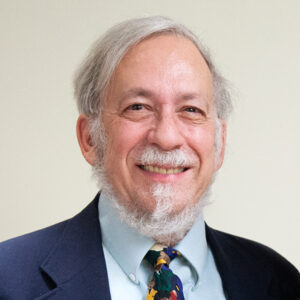
Emeritus professor of pediatrics Murray L. Katcher, MD ’75, PhD ’72 (PG ’78), died on July 13, 2024.
Katcher earned his medical degree from the University of Wisconsin School of Medicine and Public Health (SMPH), received a doctorate from UW–Madison, and completed a pediatrics residency at the UW Children’s Hospital (now American Family Children’s Hospital, part of UW Health). In 1978, he joined the faculty of the SMPH Department of Pediatrics, where he devoted more than three decades to serving as a clinician, educator, researcher and tireless advocate for the health and safety of children and vulnerable adults.
As one example, Katcher’s efforts resulted in the passage of a Wisconsin law in 1987 to regulate standard water heater temperature settings. Many small children and elderly adults had suffered third-degree burns from scalding 150-degree water, the typical setting before Katcher’s rigorous campaign. Since then, a nationwide 120-degree standard setting was enacted.
Katcher served with several community health-related organizations, health advocacy agencies, and boards. He was the state maternal and child health director in the Wisconsin Department of Health Services; a founding co-director of the Wisconsin Area Health Education Center system; and the long-standing medical director of the Salvation Army Clinic site for MEDiC, the student-run free clinic within SMPH. He also had significant experience working with American Indian and Amish communities.
Speakers in the Department of Pediatrics’ annual Murray Katcher Child Health Advocacy Lecture will continue to exemplify his focus and determination in child safety advocacy.
Katcher’s colleague, Dipesh Navsaria, MD, MPH, MSLIS (PG ’09, ’11), professor of pediatrics, published an article — “Murray Katcher: A Hero for Wisconsin’s Children” — in the July 20, 2024, Capital Times newspaper. About Katcher’s advocacy work, Navsaria stated, “He knew how to make the point, with clarity, every time. He imparted this to trainees. He clearly understood that advocacy work is not simply a hobby or a sideline, but an important skill that can (and should) be taught, practiced, and skillfully applied to improve human health, just like any medication or procedure.”
According to Ellen Wald, MD, former chair of the Department of Pediatrics, “Dr. Katcher’s passion and enthusiasm for the care of the underserved was a model for students, residents, and colleagues. His work ethic, personal integrity, and values were truly an inspiration to all.”

